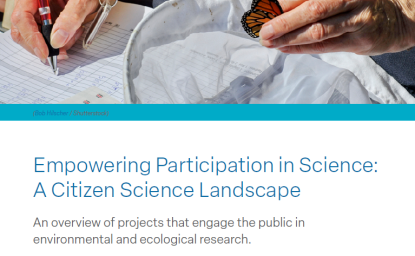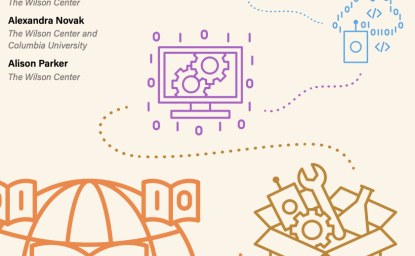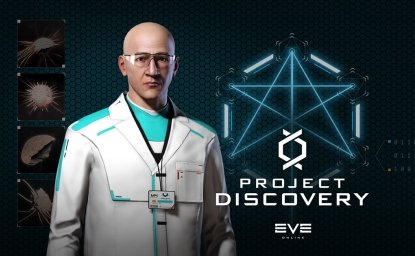Washington, DC – There is an increasing “participatory revolution” happening in biomedical research and healthcare, where citizens take their medical future into their own hands. The Citizen Health Innovators Project, launched today by the Wilson Center in partnership with NC State University’s Genetic Engineering & Society Center, will nurture this growing community of health inventors, and foster safe and responsible citizens’ participation in health research and innovation.
Fueled by their own terms and needs, citizen innovators are changing the face of healthcare. One of them is Tal Golesworthy, a bright and resolved engineer who, suffering from a genetic disease damaging his heart, designed a surgical device that would save him and other patients from a riskier procedure. Dana Lewis, a digital communication specialist suffering from Type 1 diabetes, created an “artificial pancreas” based on an algorithm that calculates the needs for insulin based on a patient’s blood sugar levels. And to find a cure for their daughters suffering of the rare neuro-degenerative Batten disease, a couple raised millions on a crowdfunding platform to hire their own research team.
Concurrently, makerspaces and community bio labs provide the space, tools and know-how for democratizing health innovation while crowdfunding platforms provide access to funding. People with diverse backgrounds and experiential know-how, interested in solving public health problems, turn towards crowdfunding and engage with engineering and biology in non-traditional settings, building on increasingly distributed and inexpensive health technologies.
While these individuals and communities are reshaping their involvement in health research and practice, they are raising new ethical, safety and governance issues for policymakers, practitioners, patients and society as a whole. With funding from the Robert Wood Johnson Foundation, the Citizen Health Innovators Project will focus on developing adaptive oversight mechanisms in collaboration with citizen health innovators, built around patient-innovation platforms, community bio-labs and crowdfunding. The project will enable structured engagement between this emerging ecosystem and existing research and regulatory institutions. Eleonore Pauwels, Director of the Biology Collectives Project at the Wilson Center and Dr. Todd Kuiken, Senior Research Scholar at NC State University will co-lead this pioneering, entrepreneurial project.
Constructive engagement with the policy community will ensure that, as participatory health innovation flourishes, social benefits are maximized and risks minimized. “The long-term vision is to nurture an open and distributed health innovation ecosystem that empowers citizens through tailored inventions and in collaboration with existing regulatory institutions,” says Pauwels.
The Wilson Center will also build on its past public engagement work and promote the ecosystem’s success stories beyond early adopters to transfer learning and bridge the gap to the next round of pioneers.
“As we witness an increasing personalization of medicine, we also see developing forms of patient-led research where groups of patients use crowdsourcing platforms to speed up clinical trial recruitment, test new treatments and share data on diseases that have been neglected by commercial research,” explains Pauwels. “Such empowerment will thrive if those at the sharp end of personalized medicine start a conversation with the citizens who decide not to wait to own and improve their health future.”
Kuiken, who pursues his decade-long collaboration with Pauwels and the Wilson Center argues: “We, as a society, are at a tipping point. We could build a new innovation ecosystem that ensures safe and responsible citizens’ participation in health research or we could drive these emerging communities of innovators to the margins.”
"Everyone has a role to play in building a Culture of Health, where all people, regardless of who they are or where they live, have an opportunity to live the healthiest life possible," said Deborah Bae, Senior Program Officer at the Robert Wood Johnson Foundation. “We must find ways to continue to encourage health innovation at the community level, while ensuring that the science is done ethically and responsibly.”
The Citizen Health Innovators Project website provides a short introduction video, innovation stories, news resources, key crowdsourcing platforms, and an online geospatial map of the makers, inventors, and other networks of actors driving democratized health innovation. The map is intended to identify where activities are occurring and how fast it is expanding. It provides networking capabilities for the health innovation community and can serve as a tool for government regulators, the general public and the scientific, bioethics and biosafety communities. Like the citizen health innovation space, the map is a living dynamic website which will evolve over time benefiting from the publics’ interest, involvement, guidance and enthusiasm. Will you join us? If you are a health maker, inventor or innovator, submit your project to the geospatial map.
###
About the Citizen Health Innovators Project
The Citizen Health Innovators Project focuses on developing regulatory and governance mechanisms for the fast-growing ecosystem of health innovators, built around maker spaces and community bio labs, to support responsible innovation in distributed networks. Support for the Citizen Health Innovators Project was provided in part by the Robert Wood Johnson Foundation. The views expressed here do not necessarily reflect the views of the Foundation. For more information, visit: https://www.wilsoncenter.org/program/citizen-health-innovators-project
About The Wilson Center
The Wilson Center provides a strictly nonpartisan space for the worlds of policymaking and scholarship to interact. By conducting relevant and timely research and promoting dialogue from all perspectives, it works to address the critical current and emerging challenges confronting the United States and the world. For more information, visit: http://www.wilsoncenter.org





